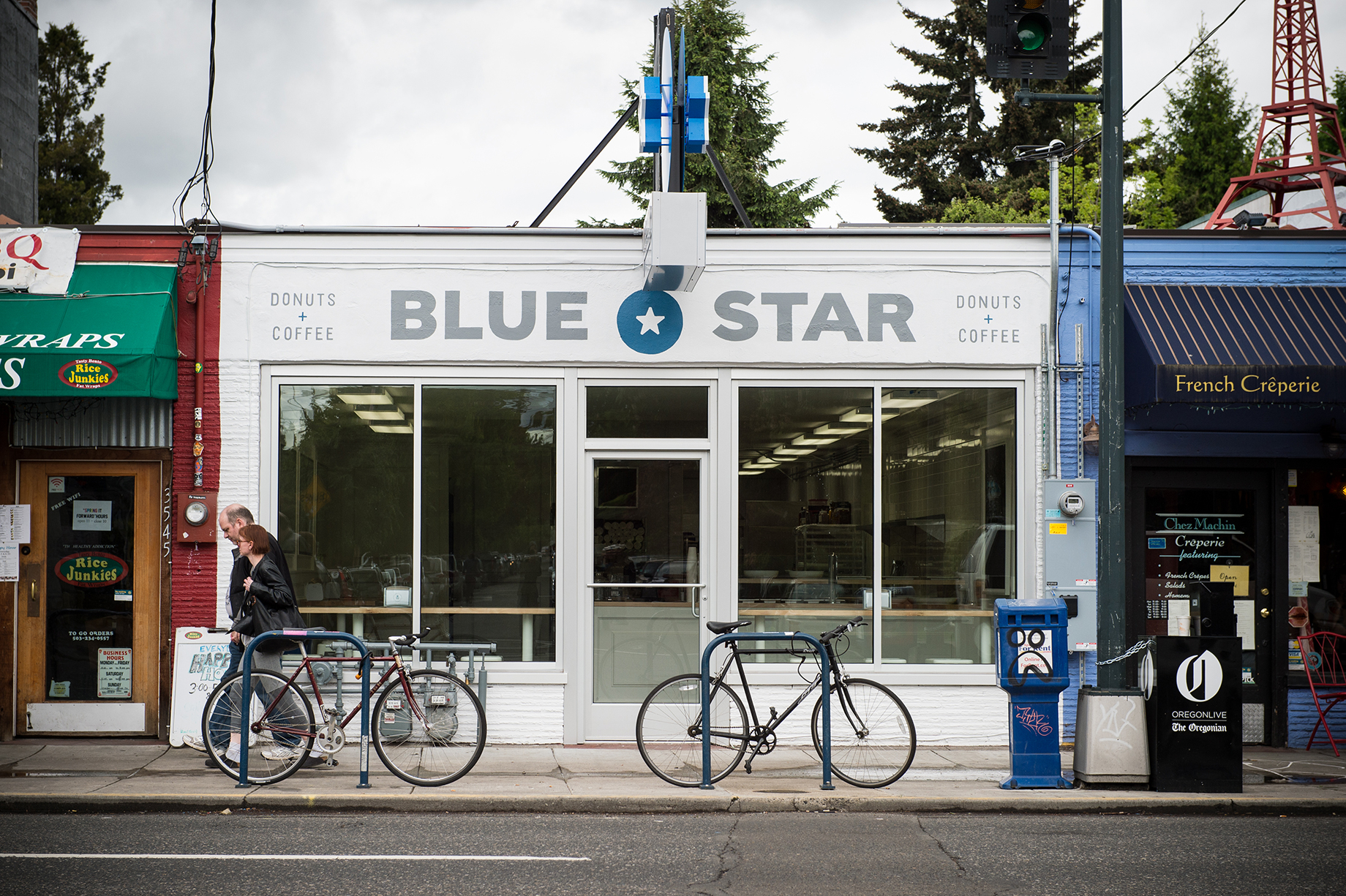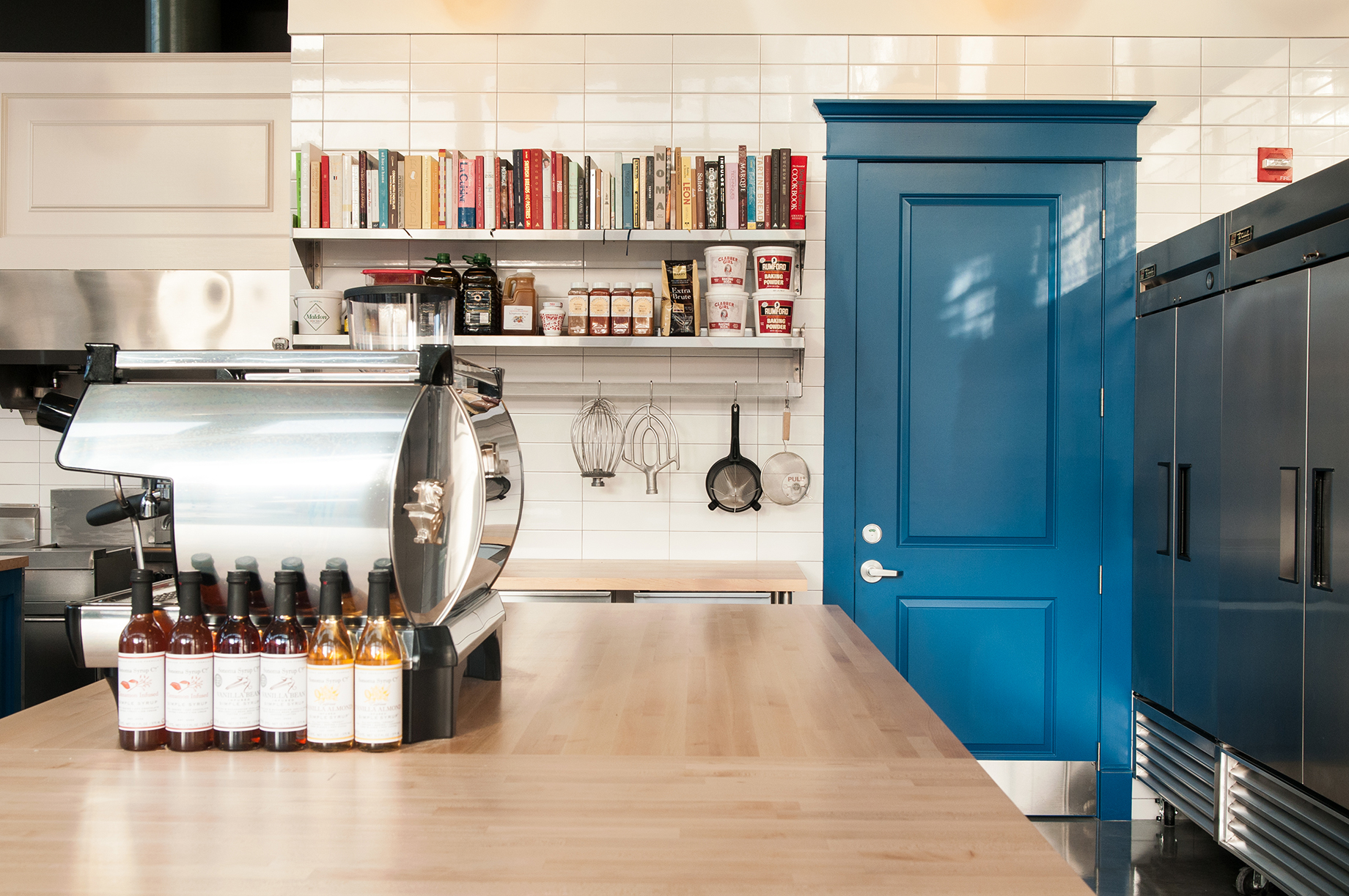What is it about Portland and doughnuts? A visitor to Portland, Ore., is likely to have been to Voodoo Doughnut, an almost obligatory stop for tourists checking out the city’s trendsetting food scene. But Portland is also the birthplace of Blue Star Donuts, another new-wave doughnut concept that has caught on fast. Voodoo Doughnut is known for its wacky creations — more specifically, its unusual doughnut toppings, such as sugary cereal or maple frosting paired with slices of fried bacon. Blue Star, however, takes a more highbrow approach to the humble doughnut. And given the culinary background of one of its founders, it may not be too hard to see why.

Blue Star was founded in 2012 by Portland chef and restaurateur Micah Camden and his business partner, Katie Poppe. Camden made a name for himself on the local fine-dining scene before joining with Poppe and launching Little Big Burger — a fast-casual chain specializing in made-to-order, quarter-pound, natural-beef burgers (with chèvre or blue cheese among the toppings), and french fries finished with truffle oil. In 2015 Camden and Poppe sold the chain for some $6 million to Charlotte, N.C.–based Chanticleer Holdings, which owns several higher-end burger concepts and some Hooters restaurants. Even before selling Little Big Burger, Camden and Poppe discussed coming up with a new business. They settled on the Blue Star concept after touring bakeries in France for culinary inspiration. New York City pastry chef Stephanie Thornton joined them to help with recipe development and operations.
The first Blue Star opened in December 2012. The chain now has six units in Portland (including one at Portland International Airport) and two in Los Angeles. The company also operates three shops in Japan — a country with strong cultural and business ties to Portland. Large numbers of Japanese tourists visit each year, and Sapporo has long been a sister city; there is, in fact, a Portland-Sapporo Sister City Association that fosters cross-cultural programs, including visits from international delegations, political outreach and promotion of Japanese-themed events in Portland.
“We know people in Portland love doughnuts because of the success of Voodoo and the thriving food scene here,” said Jessica Kulp, Blue Star’s general manager. Blue Star’s doughnuts are made from a classic brioche recipe that originated in the south of France. The dough is mixed from high-quality flour, cage-free eggs, hormone-free milk and European-style butter, then fried in rice oil.
If you are in the mood for a traditional glazed or cinnamon-sugar doughnut, you’ll find one at Blue Star, but the chain also pushes the envelope in terms of flavors. Its best sellers include a blueberry-bourbon-basil glazed doughnut, inspired by a popular cocktail served at an upscale Japanese restaurant that Camden opened in the early 2000s. Another top seller is the light, gooey apple fritter, made from a blend of dough and chopped apples mixed with spices. Blue Star sources many of its ingredients from local producers, including the apple cider used in the fritter glaze.

The Cointreau crème brûlée dough-nut is one of Blue Star’s most out of the ordinary creations. Filled with scratch-made vanilla custard, the shell donut is brûléed with sugar to give it a slight crunch. It is served with a side of Cointreau syrup in a pipette protruding from the doughnut. Customers can inject the orange-flavored syrup into the doughnut for a bit of extra flavor.
Unusual as many of Blue Star’s doughnuts may be, the chain’s well-lit stores are fairly simple in design. Customers sit on white bar stools at high-top, butcher-block tables. Like pieces of fine jewelry, doughnuts from each available flavor are displayed individually, rather than in batches, within glass cases. “At a lot of other doughnut shops, you’d find doughnuts displayed in bulk on racks,” said Kulp. “We put a single doughnut [from each flavor selection] on display. The display is intended to be beautiful and appetizing.”
Blue Star prices are on the high end too. The prices vary by flavor, but the doughnuts cost $3.50 each, on average. Blue Star’s objective is to make customers feel as if they have indulged in a small luxury, says Kulp.
“It’s a made-from-scratch, carefully put-together doughnut,” she said. “It’s a luxury experience.”
By Anna Robaton
Contributor, Commerce + Communities Today


